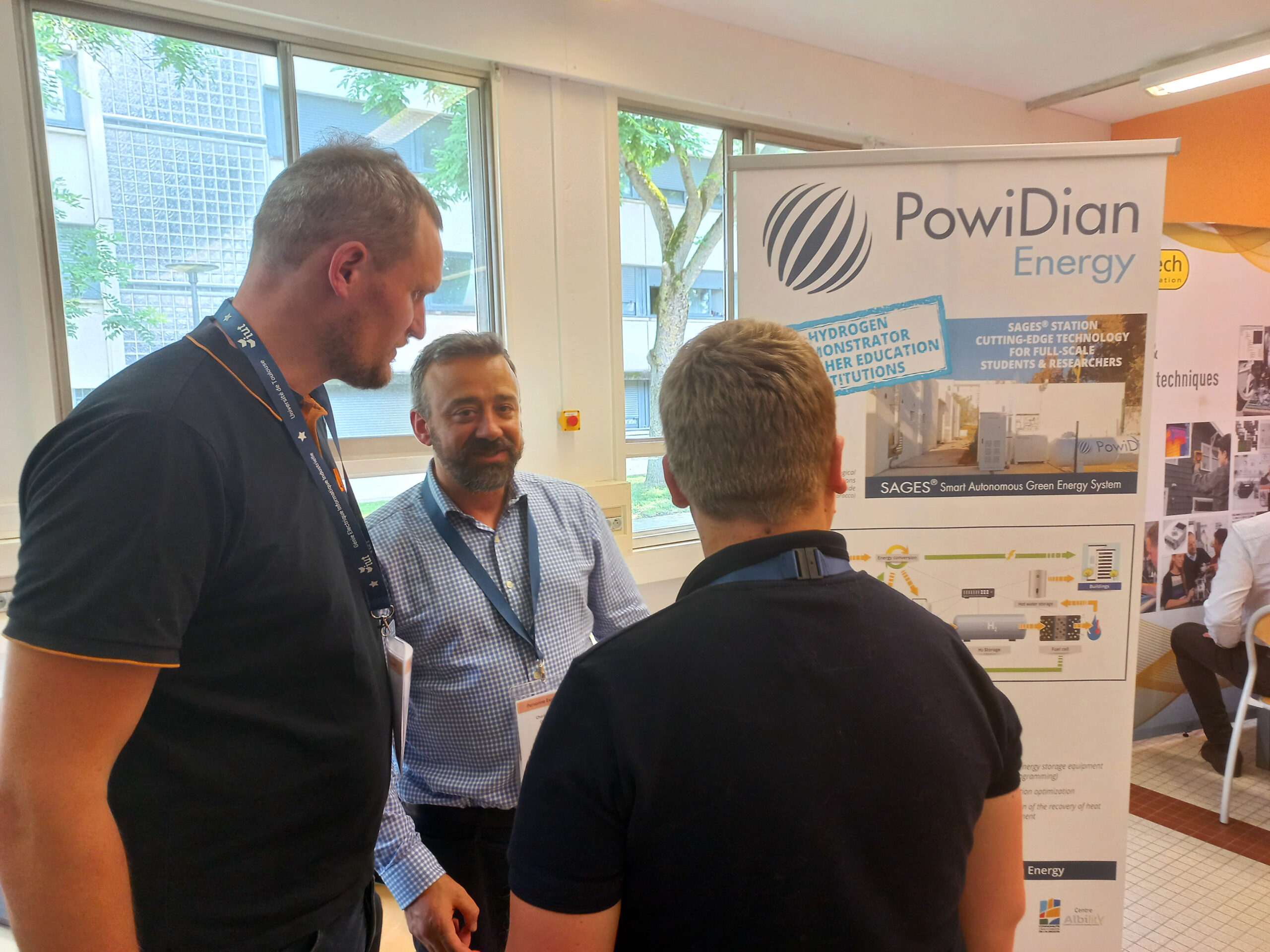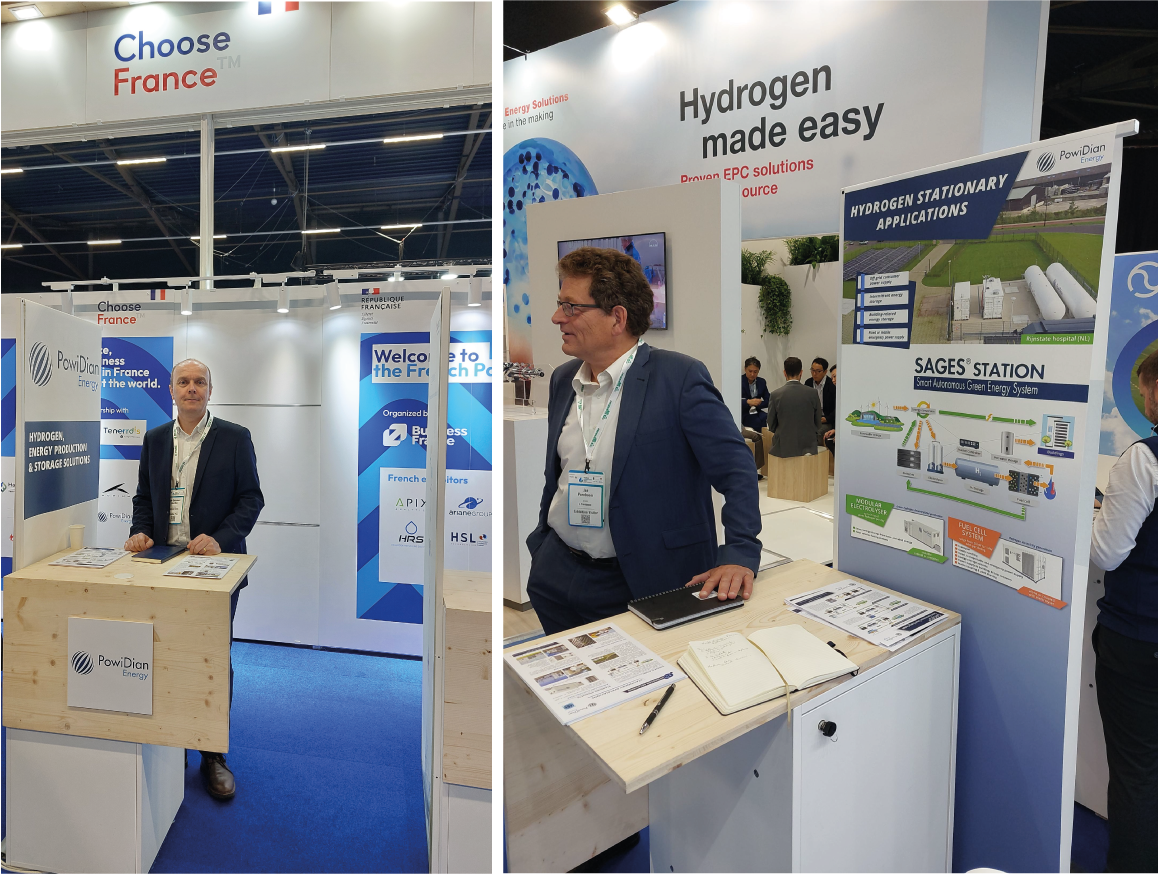Partnership Signing with GRZ Technologies
- Author Communication
- Date 01/31/2025
POWIDIAN ENERGY expands its range of hydrogen storage solutions
for industrial and large-scale applications
Official Partnership Signing with GRZ Technologies SA
at the Hyvolution exhibition in Paris
Since 2013, PowiDian Energy has been an EPC/integrator of electricity production systems and energy storage solutions using hydrogen with its SAGES® technology for international clients. This technology facilitates the transformation of intermittent, non-controllable renewable energy for readily available use. It covers a wide range of applications, such as the supply of off-grid consumers, the storage of intermittent energies, self-consumption with storage, as well as stationary or mobile emergency power supply.
Currently, the hydrogen storage solutions offered are in gaseous form, with hydrogen compression up to 500 bars.
Maximized hydrogen storage offerings
PowiDian Energy will now expand its hydrogen storage offering using long-duration metal hydride solid-state hydrogen technology by signing a commercial partnership with Swiss company GRZ Technologies SA. PowiDian Energy intends to expand its solutions to residential, industrial and large-scale applications. These energy-dense, containerized solid-state hydrogen storage solutions have storage capacities from 45 to 675 kgH2. With storage densities of up to 30 kg of hydrogen per m3 per module, GRZ Technologies’solutions provide a compact solution to high energy demands.
Modular and scalable design
This solid-state hydrogen storage technology is scalable with a “modular” storage system, allowing users to increase its capacity according to evolving demands. It offers excellent safety properties, which allow it to be installed in almost any environment, even within a tightly enclosed space.
Evolution of our offers for hydrogen compression
PowiDian Energy will also distribute GRZ’s hydrogen compression technology, the HyCo. This technology, based on a novel thermochemical process, enables compression of hydrogen using thermal energy instead of mechanical energy. By doing so, lower levelized cost of compression can be achieved, combined with minimal maintenance and noise-free, vibrationless operation. The units can be used for industrial hydrogen compression such as trailer refuelling or compression within chemical plants (e.g., ammonia or methanol synthesis, steel industry, etc.).




